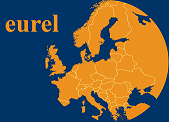Financing of Churches and other religious communities (CRC) has not been debated topic in the sociology of religion. This paper is based on an analysis of the issue of financing of CRC in a number of European societies and it argues not only that the issue of financing from public sources is a relevant one but also that it reveals important aspects of Church-state relations and of the public role of religions in contemporary societies. Two important findings will be discussed. Firstly, ways of financing from the state and other public sources do not correspond to models of Church-state relations that are found in European societies: state or national Church model, strict separation model, and cooperation model. Church tax, e.g., is present in countries with different models and in addition to the main model of financing found in one country, there are many other and different ways of additional funding. Secondly, ways of financing do not correspond to the general level of religiosity in each country, or to the secularization level, as measured by usual sociological indicators. In addition, the paper argues about two different types of pluralization that are visible while looking at the financing issue. The first is internal pluralization, which is the result of the fact that there is a great diversity of financing instruments of different activities of CRC. Secondly, and at the same time, there is a limited pluralization in the meaning that the state financing still lags significantly behind the rising religious diversity. This will be discussed in the context of the way the European public space is structured and the role of (traditional) religions in maintaining of the so-called “foundational myth” of different societies, but also of Europe as such.
Contributions > Papers - by speaker > Zrinščak Siniša
Thursday
29
Panel 2: Religious Engagement and Political Mobilization of Minority Religious Groups
Wolfgang Wieshaider › 15:30 - 18:00 (2h30) › BS 2.01
Financing of Churches and Pluralization: European Diversities Revisited
1 : Faculty of Law - University of Zagreb
|
| Online user: 1 | RSS Feed |

|

 PDF version
PDF version